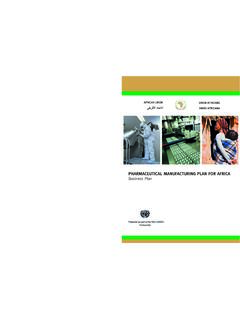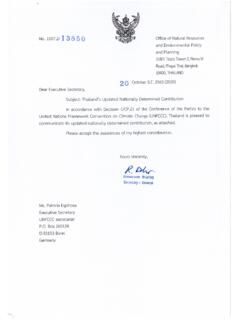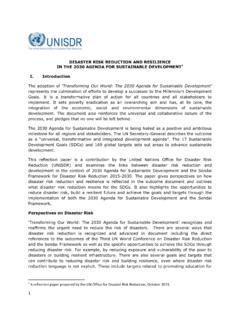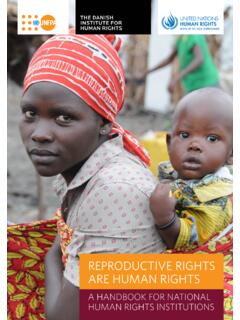Transcription of The National Environmental Education Action Plan 2018 …
1 The National Environmental Education Action plan 2018-2040(VERSION 1)The National Environmental Education Action plan 2018-2040 (Version 1)A Publication of:The Republic of the PhilippinesDepartment of Environment and Natural ResourcesEnvironmental Management BureauDENR Compound, Visayas Avenue, Diliman1100, Quezon City, 2017 Department of Environment and Natural Resources, PhilippinesThe EU SWITCH-Asia Programme: of the European Union to the Philippines and Design by ECCIA uthorsDr Rona ChandranDr Channa GunawardenaProf Nestor CastroDeveloped with support of the European Union SWITCH-Asia ProgrammeDisclaimerThis document may be reproduced in whole or in part and in any form for educational or non-profit purposes without special permission from the copyright holders, provided acknowledgement of the source is would appreciate receiving a copy of any publication that uses this publication as a source.
2 No use of this publication may be made for resale or for any other commercial purpose whatsoever without prior, individual permission in document was developed with the assistance of the European Union under the SWITCH Policy Support Component Philippines. The contents of this publication are the sole responsibility of the publisher and can in no way be taken to reflect the views of the European in 18 Asian developing countries with overall funding of more than 300 million euros (2007-2020), SWITH-Asia is the EU s programme focusing on sustainable consumption and production as an approach to development.
3 The programme promotes economic prosperity and poverty reduction in Asia by encouraging a sustainable approach to growth with positive Environmental and social SUMMARYSETTING THE STAGEMOVING FORWARD National and International Policy CohesionUnderstanding Education for Sustainable DevelopmentThe Role of Stakeholders in Education for Sustainable DevelopmentGlobal ProgramsA Glimpse of Education for Sustainable Development in Asia and EuropePolicy and Institutional Framework in the Philippines1243 EMBARK: Environmental Education TOWARDS SUSTAINABLE DEVELOPMENT The Missing LinkThe Philippine Environmental Education ModelEnvironmental Education for the PhilippinesThe Spirit of Luntiang Puso THE Action plan Institutional Arrangements National and International Partnerships Initiatives and Awards Curriculum Teaching and Learning Materials Capacity Building Monitoring & Evaluation List of AcronymsEEEFAESCESDESCP SDGs Environmental Education Education for AllEducation for Sustainable ConsumptionEducation for Sustainable DevelopmentEducation for Sustainable Consumption and Production Sustainable Development
4 Goals2567899111416 171819212226283033353638 The National Environmental Education Action plan 2018-2040 (VERSION 1) 2 EXECUTIVE SUMMARY3 Human capital development is the largest and most profitable long-term investment for any nation to invest in. Human capital is critical to National economic development and there is a strong correlation between quality Education and economic performance. The world is constantly changing and the demands and challenges are persistently growing in volume and intensity. Quality Education is a form of Education that should be able to prepare the young to face such challenges and to be able to think critically.
5 Education systems should not be limited by rigid and archaic forms of structures and syllabi that do not adapt to global needs, advancement and changes. Many countries across Europe and Asia have recognized the need to provide Education that addresses the three pillars of sustainable development. Respect, understanding and preservation of values and cultural heritage of the different communities should also be incorporated into educational designs to promote world peace and global citizenship. Social cultural values are important drivers towards sustainable development.
6 The National Environmental Education Action plan 2018-2040 is a comprehensive document aligned with local and global development agendas. It is a document that aims to enhance and complement Education across the educational cycle in the Philippines through formal, informal and non-formal educational measures. The Action plan presents the model of Environmental Education , in the context of sustainable development, in the Philippines and has identified local socio-cultural values as drivers towards sustainable development. It is divided into three phases: medium term, long term and foresight to foster proper planning and execution of the identified incremental strategies.
7 The responsibility to educate and create awareness especially among students is a shared obligation that all stakeholders have a crucial part to play. The National Environmental Education Action plan 2018-2040 (VERSION 1) 4 SETTING THE STAGE 5 SETTING THE STAGE 1 Education is one of the most powerful tools to develop and shape a nation. It is the National obligation of every nation to provide free and compulsory universal primary Education to all children to fulfill the basic human rights of the children. The scope of Education today has developed far beyond the basic skills of numeracy and literacy.
8 Goal 4 of the Sustainable Development Goals (SDGs) clearly indicates the need to provide not just Education but quality Education . Education systems around the world are striving to provide quality Education to not only the young minds of the nation but to every citizen. Realizing the misleading message of quantitative data of the number of children attending schools and the number of new school buildings and other related physical infrastructure to measure the provision of quality of Education provided course for the Jomtien Declaration 1990 in Thailand and Dakar Framework for Action 2000 in Bangladesh to progress towards the provision of quality World Education Forum 2015.
9 Organized by UNESCO on Quality Education describes quality Education as Education systems that foster the conditions for global peace and sustainable development 1. This has provided clear direction for Education systems around the world on what should be included in educational designs. Therefore, to ensure that the prescribed National level Education is of substantial quality, it is necessary to incorporate knowledge and skills that promotes National and global peace and to educate students to understand and contribute towards sustainable development.
10 In addition, quality Education also provides a practical reason for children to attend school and for parents to see the need to send their children to school. Quality Education should be able to address the needs of the nation while keeping abreast with evolutions that are taking part in the world. The Education For All (EFA) Global Monitoring Report of 2005 clearly states that if Education is of higher quality individuals achieve their own economic, social and cultural objectives and helps society to be better protected, better served by its leaders and more equitable in important ways 2.






